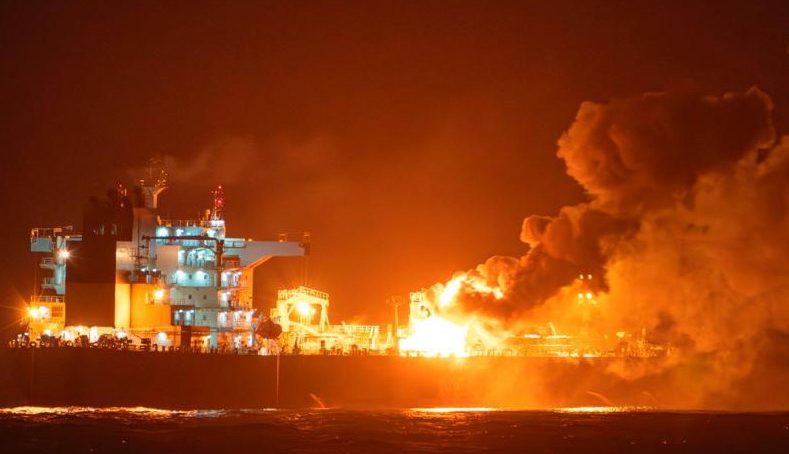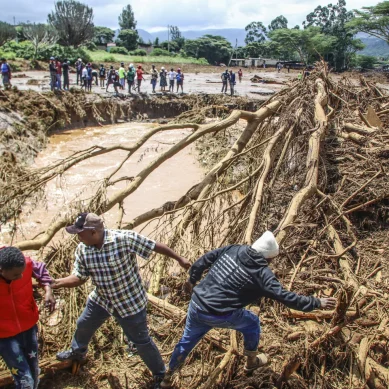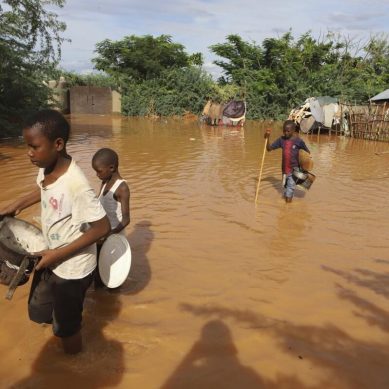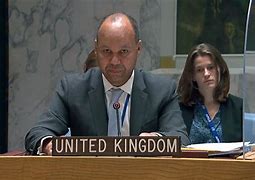
Increased shipping flows around the African continent require a heightened awareness and readiness for off-shore assistance, possible resupply, dependable bunkering services, medical support and search and rescue certainty.
Yet, many countries lack credible maritime policing capabilities. Some have modern naval vessels but these are largely harbour bound, leaving commerce to sail through weakly governed and vulnerable maritime routes.
Maritime domain awareness (MDA) is the basis for extending good order at sea off Africa. There are five subregional maritime rescue coordination centres (MRRCs) and 26 subcentres around the continent to cover the entire African coastline for purposes of search and rescue coordination.
Two centres began operations in 2022: a Regional Maritime Information Fusion Centre (RMIFC) in Madagascar, providing monitoring and sharing of suspicious vessel activity in the region and a Regional Centre for Operational Coordination (RCOC) in Seychelles, which uses the information from the RMIFC to coordinate maritime security responses in the Western Indian Ocean (WIO).
Although the means for better MDA are in place with the network of MRRCs and the two WIO centres, very little, if any, capacity exists in the African region bordering the Red Sea to help mitigate the range of threats at play – despite the information available and shared.
Western navies and the Indian Navy have stepped in to contain the emerging threat landscape through multinational naval responses – including Prosperity Guardian, Operation Aspides (EUNAVFOR) and Operation ATALANTA (anti-piracy). These efforts are vested in maintaining the integrity of the maritime component underpinning the global economy. Yet African navies are conspicuously absent. Not even Egypt, which has a very capable navy and stands to suffer significant economic losses from the crisis, has deployed a single vessel.
As parties to the Law of the Sea (UNCLOS), 47 African countries have a shared responsibility to keep the seas safe from armed interference for free and safe transit in international waterways. Yet, many African governments are seemingly not taking their national maritime interests seriously, ignoring their obligations under UNCLOS and the multiple conventions regulating safe shipping and international cooperation.
At the national level, individual maritime security strategies and programs to promote blue economy opportunities have come under pressure. National policy processes for many African littoral countries have not resulted in enhanced maritime security.
Several countries like Ghana, Nigeria, and Kenya, regional bodies like the Intergovernmental Authority on Development (IGAD) and the island states of Seychelles and Mauritius are addressing this matter. For the majority, however, there is a need to extend security beyond Africa’s littoral zones if they are to achieve the maritime ambitions of the African Union (AU) to develop a sustainable and thriving blue economy through its 2050 AIM Strategy as well as the economic growth and development vision in the AU’s Agenda 2063.
The Red Sea maritime crisis demands a recalibration of African maritime security efforts to help keep the routes of trade open, safeguard undersea communications cables, and protect the rule of law.
Expand the scale and scope of maritime information fusion centres to heighten maritime domain awareness. MIFCs can advance MDA by collecting and analysing information on maritime-related risks and then share actionable intelligence to policymakers and security practitioners.
To make the intelligence more meaningful, Africa needs to scale up the number of MIFCs beyond the existing RMIFC as well as expand the scope of information collected – to include environmental crimes (IUU fishing, toxic waste dumping) and threats from militant nonstate groups. Existing maritime security architecture and lessons from the Somali piracy experience must be incorporated and refined to respond to future Houthi-style threats.
Scale up existing security cooperation structures to respond to maritime crises. Over the past decade, much work has been done to instil knowledge, capacity, cooperation and skills to deal with maritime threats, such as through the zonal architecture of the Yaoundé Protocol and the information-sharing network of the Djibouti Code of Conduct. This knowledge base must be updated to the harder threats enabled by technologies used in the Houthi aggression. Here dormant structures and protocols must be revived or upscaled.
Somalia serves as a fruitful field from which to learn and build on existing knowledge, networks, and capacity building experience. One urgent step is to set up Africa’s own networks to interface and share knowledge on the flows of drone and missile technologies to African militant groups.
Elevate African diplomacy to enhance general protection of trade routes, subsea cable networks and humanitarian assistance. Every African country depends on the continued and uninterrupted flow of goods and telecommunications networks. The Houthi threat and the cable breaks in the Red Sea demonstrate the vulnerabilities in the maritime domain and the need to bring protection, redundancy, and international cooperation into line.
As parties to the Law of the Sea (UNCLOS), 47 African countries have a shared responsibility to keep the seas safe.
Several matters are at play in this effort. African leaders must be mindful of the growing regional rivalries to establish foreign naval facilities in African waters. At the same time – and remaining in step with African preferences for South-South cooperation – Turkey and India may be potential partners. This includes cooperation with selected multinational corporations to protect and repair subsea cable systems around Africa.
African maritime diplomacy initiatives must now include an explicit maritime cooperative element to move from the popular ministerial declarations and communiqués (and their resultant patchwork of political agreements) to that of actual structure, programmes and operations as ordered ways and means to address African maritime interests.
African countries must make use of their collective voice and put their national maritime security strategies and programmes into play to better protect an international good based on common interests and security. African countries have a voice in international organisations such as the United Nations and within the framework of UNCLOS.
Africa also has a voice in the International Maritime Organization as well as the International Cable Protection Committee. It must also start using its voice in the intergovernmental BRICS organization to influence members, such as Iran and China, to be more constructive rather than coercive maritime security providers and to engage in cooperative maritime and naval diplomacy.
Collectively, the above are incremental steps toward positioning Africa as an emergent maritime security provider to address rapidly evolving maritime interests.
- A Tell report / By Francois Vreÿ and Mark Blaine











